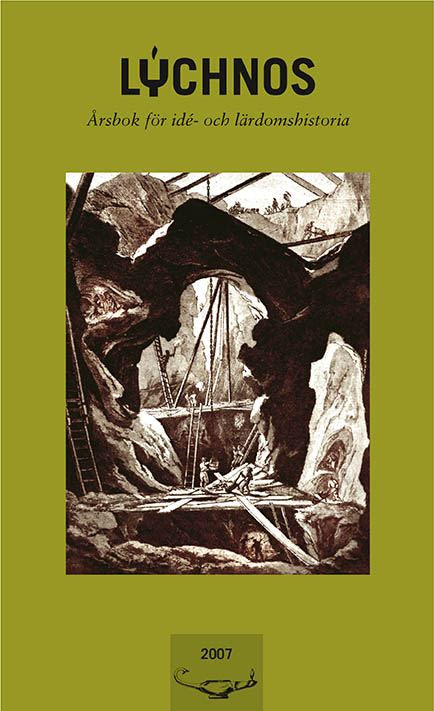Språket i universum
Polhem och alfabetskonsten
Abstract
The Swedish inventor Christopher Polhem had an idea of a universal language which occupied him for decades, i.e. a perfect language which can be spoken and understood by everyone, by the educated and non educated alike, and no matter where they come from. Polhem did a large number of sketches for such a universal language, among others a manuscript concerning a lunar language, which was completely regular and easy to learn. Here he uses the literary theme of imaginary voyages in connection with the contemporary interest in Laplanders. His constructions of a perfect language have to do with his own poor educational background, his own difficulties in reading books, understand the Latin and spelling correctly. Universal language schemes were popular in his time. Polhem's versions show similarities especially with George Dalgarno's and John Wilkin's encyclopaedic constructions. Emanuel Swedenborg's symbolic language is, beside Polhem's, the best Swedish example of a universal language. What can be added to the common interpretation of the universal language tradition is its foundation in human cognitive abilities, such as categorical thinking where every thing and concept could be placed in its specific ”box”.
Polhem tried to construct a language where every letter should stand for a simple concept or thing. The universal language should be pedagogic, efficient, concentrated, and regular, and should have a solid, logical ground. He applied it to the things of nature, and even tried to construct his own botanical nomenclature instead of Carl Linnaeus's system. This was at a time when the whole world was to be classified, and science was obsessed by order. There existed a universal language, though – Latin, but it was socially excluding, and thus criticized by Polhem. The idea of a universal language hade also a connection to the ”atomisation” of reality. Polhem constructed a mechanical alphabet where every simple mechanical motion was like a letter in the ordinary alphabet. He also constructed a cipher machine. The focal point of the universal languages was order, but the languages were also based on cognitive metaphors such as ”categories are containers”, ”the world is a set of particulars” and others. Behind the categorization, there is also an informal theory of essences. Finally the categories are not ”out there” in the world, but ”in there”, in his thoughts.
Downloads
Publicerad
Nummer
Sektion
Licens
This work is licensed under a Creative Commons Attribution 4.0 International License. The copyright for the work published in Lychnos remains with the authors.


